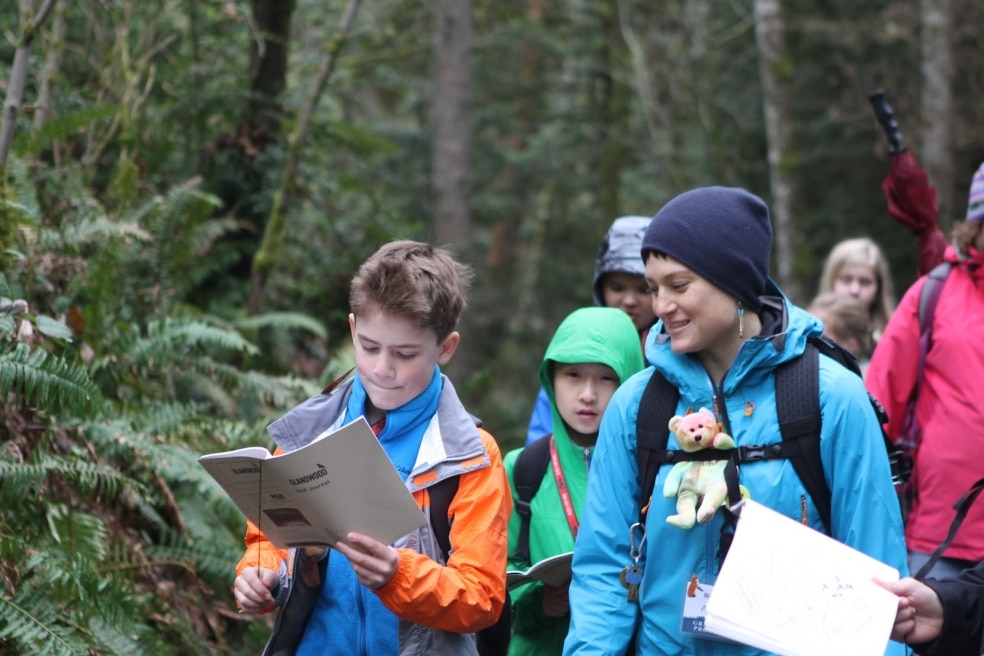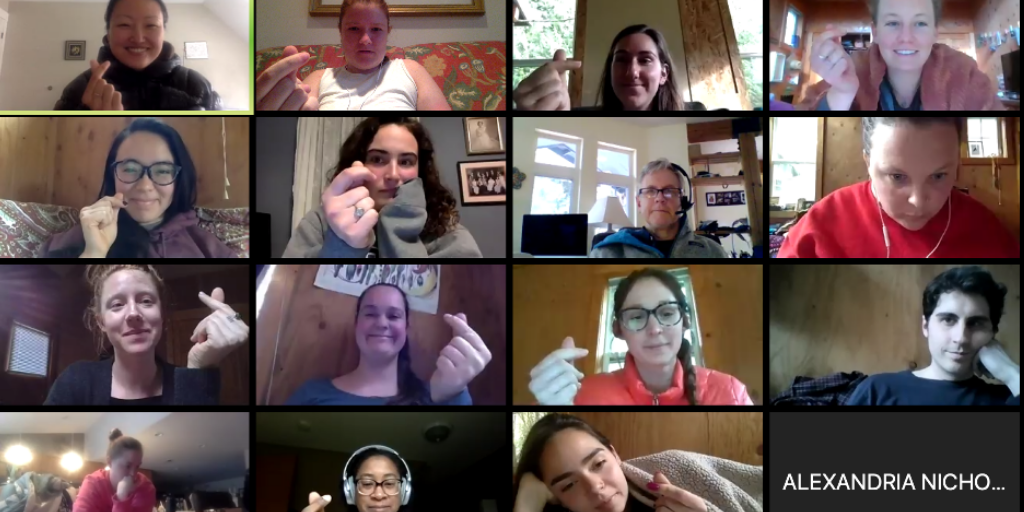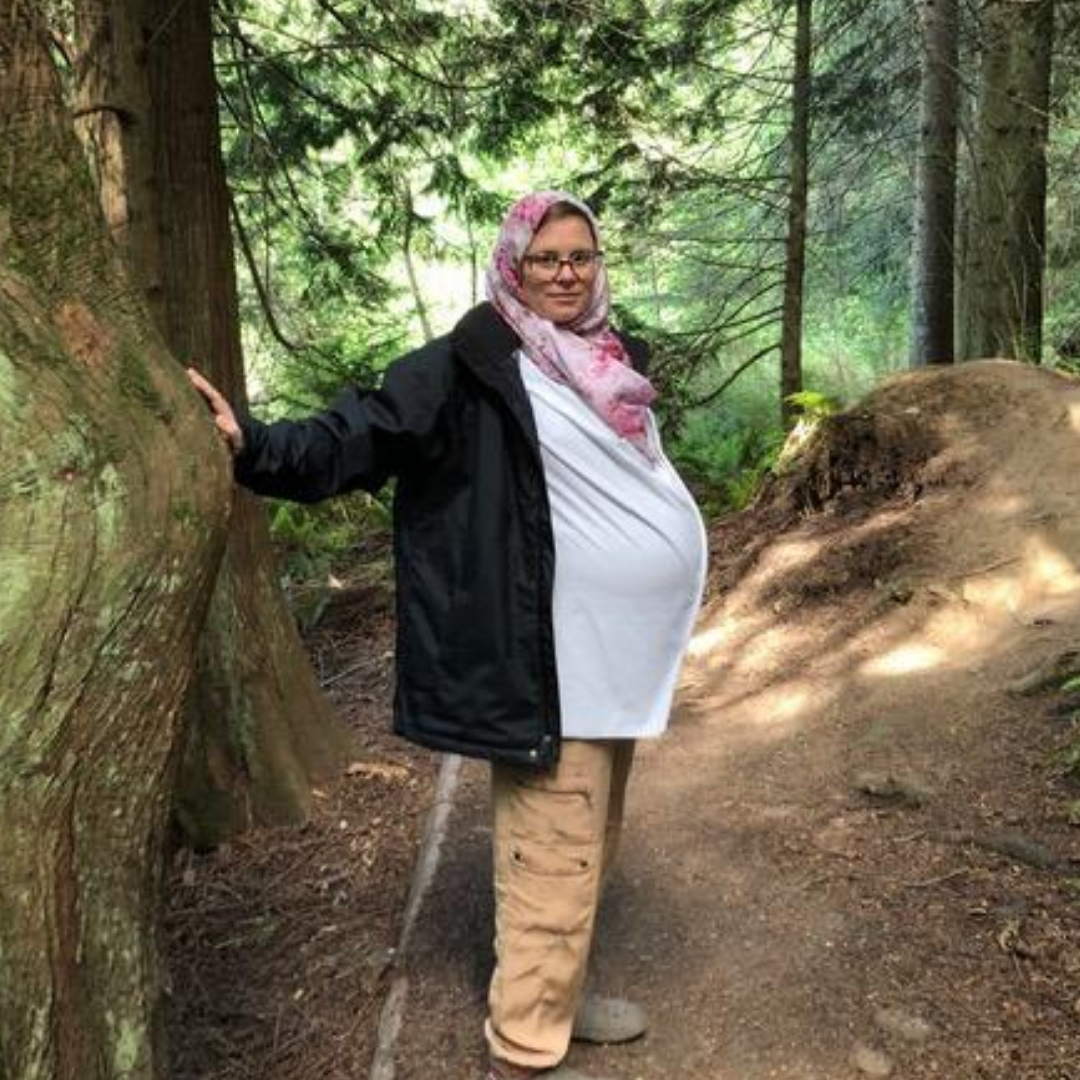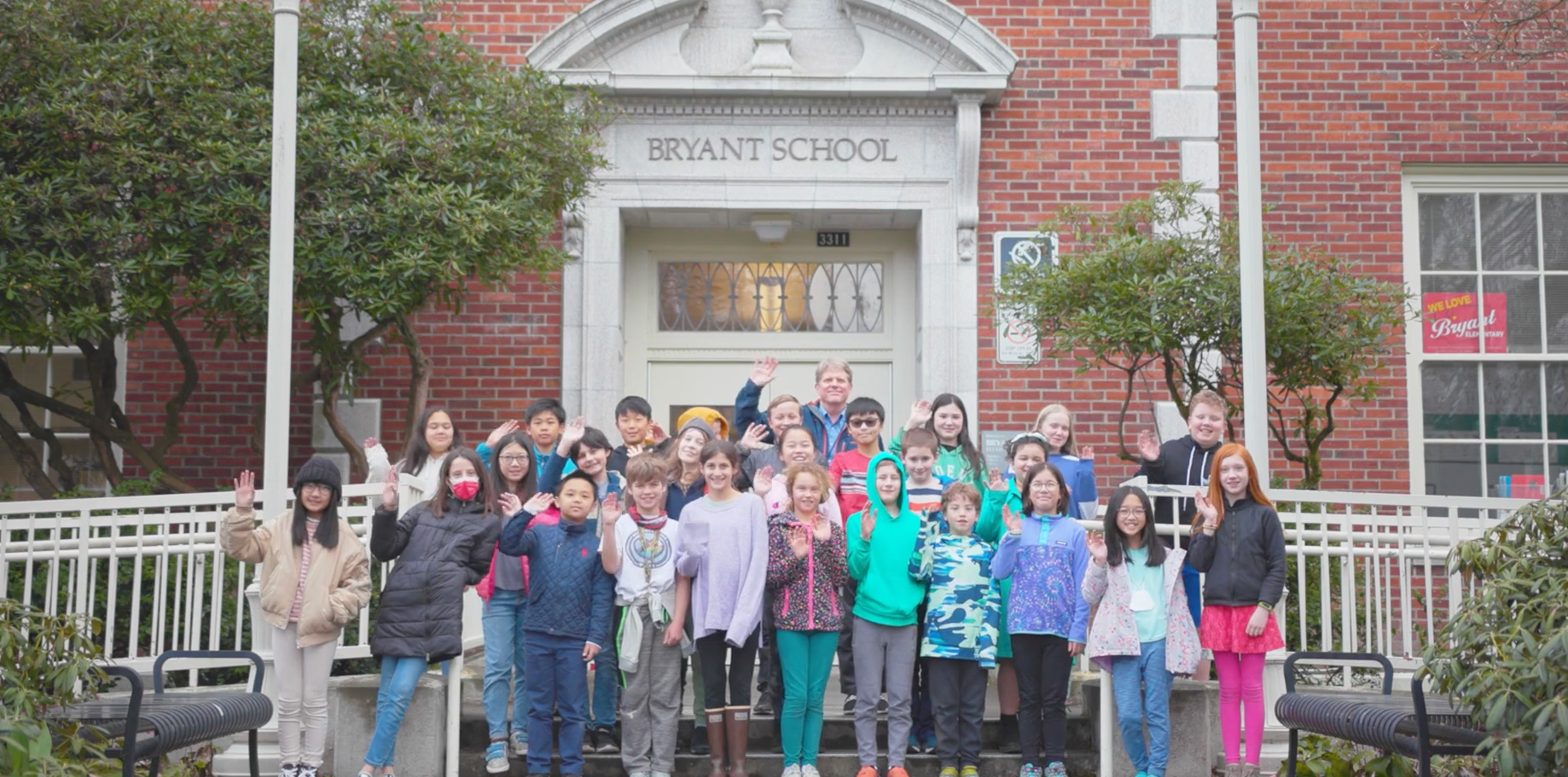When the IslandWood graduate program moved online with the arrival COVID-19, faculty transitioned from teaching…
Author: Alison Martin
There’s nothing like watching a video of yourself engaged in doing something new to elicit feelings of discomfort. The awkward struggle so evident in one’s subtle body language is enough to make the viewer reach for the pause button. I recently watched a video of myself teaching at IslandWood early in my School Overnight Program practicum as part of a homework assignment for the IslandWood Graduate Program. Each teaching week our mentor films a portion of a lesson and watches it with us to guide the reflection process. The mentor relationship is an opportunity for each of us to learn from a more experienced educator in the field of outdoor education in all aspects of our teaching, whether lesson planning, behavior management techniques, or using reflection as a tool for growth.
While I was able to recognize that I gave the impression of being calm, cool, and collected during my lesson on setting goals for the day, I could see the disequilibrium I was experiencing through the nuance of my nonverbal communication. I could see the figurative gears moving in my head, processing not only the reactions, thoughts, and comprehension of the students, but also trying to keep track of the time, where I had placed my binder, and, wait, when is lunch time supposed to be again? The strain of juggling wants, needs, and questions with the minor, yet imperative, details of guiding a successful day in the field, were revealed through my stiff posture and my seeming inability to listen whole-heartedly to each student’s ideas.
The most significant moment was how I handled the comments of a particularly advanced student, who was referencing an article or source that indicated learning is best when all the senses are engaged. Doing my best to frame his observation with IslandWood learning targets, I brought up how he had quantitative and qualitative evidence for his claim. While I think that was a good thing to point out, for whatever reason it seemed to end the conversation, as if his curiosity wasn’t intrigued by that response. Fast forward to now, and I would be more curious about his opinion myself, asking him questions instead of only pointing out an “achievement” or “connection” that he made. This could draw out a student’s thinking more, rather than seemingly squash it or dampen his/her fire of curiosity. One reason I may have behaved like this back in October was due to the “disequilibrium” phase I was going through, as well as the lack of training I had in thoughtful and deliberate questioning. I was trying so hard to grasp the situation in its entirety that I wasn’t relaxed enough to respond in a more curious manner or to think of more creative questions to keep him going.
It was beneficial to take a step back in time and re-examine this early stage in the process of finding my equilibrium, to see myself practicing a whole new skill set in such a new environment. I wonder if I’ll re-watch these videos my mentor takes each week of me teaching when I’m an older, perhaps wiser teacher, and bear witness to growth, progress, and change. I’m certain there will be lots of temptations to reach for the pause button while also enjoying the never-ending path of reflection.










